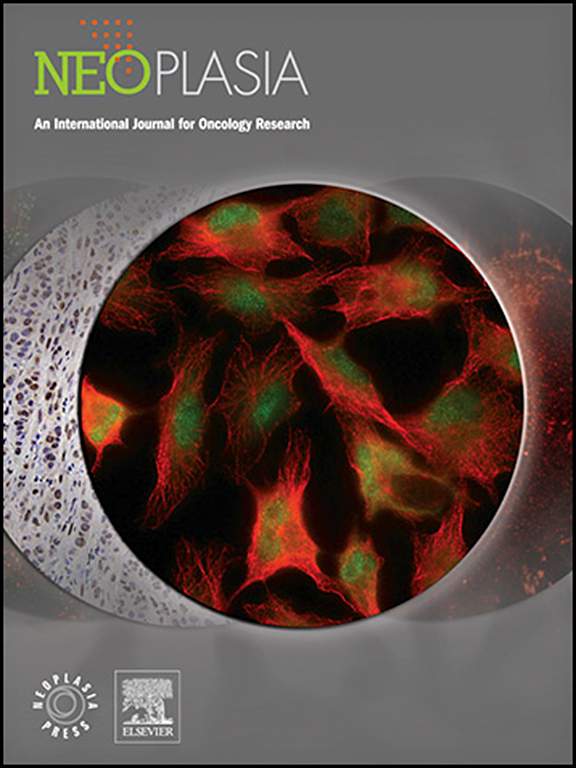PDGFRA治疗小儿高级别胶质瘤是靶向治疗还是分散治疗?
IF 7.7
2区 医学
Q1 Biochemistry, Genetics and Molecular Biology
引用次数: 0
摘要
小儿高级胶质瘤(pHGGs)是侵袭性和分子异质性的小儿脑肿瘤,生存率极低。受体酪氨酸激酶(rtk)在很大比例的pHGGs中反复发生改变,可以潜在地靶向酪氨酸激酶抑制剂(TKIs)。PDGFRA是pHGG中最常见的RTK改变,因此代表了一个有吸引力的治疗靶点,然而PDGFRA畸变的患者在很大程度上未能对TKIs产生反应。这就提出了一个问题,即PDGFRA是否是所有pHGG病例中唯一的致癌依赖性,或者是否存在未被识别的机制赋予TKI抗性。在这里,我们探索特异性PDGFRA改变驱动肿瘤发生和潜在介导治疗耐药的机制,以确定PDGFRA是临床有用的靶点还是仅仅是一种干扰。本文章由计算机程序翻译,如有差异,请以英文原文为准。
PDGFRA in paediatric high-grade glioma – target or distraction?
Paediatric high-grade gliomas (pHGGs) are aggressive and molecularly heterogenous paediatric brain tumours with extremely poor survival outcomes. Receptor tyrosine kinases (RTKs) are recurrently altered in a significant proportion of pHGGs and can be potentially targeted with tyrosine kinase inhibitors (TKIs). PDGFRA is the most frequently altered RTK in pHGG and as such, represents an attractive therapeutic target, yet patients harbouring PDGFRA aberrations have largely failed to respond to TKIs. This raises the question as to whether PDGFRA is the only oncogenic dependency in all cases of pHGG, or alternatively, if there are unrecognised mechanisms conferring TKI resistance. Here we explore the mechanisms by which specific PDGFRA alterations drive oncogenesis and potentially mediate therapeutic resistance, to ascertain whether PDGFRA is a clinically useful target or merely a distraction.
求助全文
通过发布文献求助,成功后即可免费获取论文全文。
去求助
来源期刊

Neoplasia
医学-肿瘤学
CiteScore
9.20
自引率
2.10%
发文量
82
审稿时长
26 days
期刊介绍:
Neoplasia publishes the results of novel investigations in all areas of oncology research. The title Neoplasia was chosen to convey the journal’s breadth, which encompasses the traditional disciplines of cancer research as well as emerging fields and interdisciplinary investigations. Neoplasia is interested in studies describing new molecular and genetic findings relating to the neoplastic phenotype and in laboratory and clinical studies demonstrating creative applications of advances in the basic sciences to risk assessment, prognostic indications, detection, diagnosis, and treatment. In addition to regular Research Reports, Neoplasia also publishes Reviews and Meeting Reports. Neoplasia is committed to ensuring a thorough, fair, and rapid review and publication schedule to further its mission of serving both the scientific and clinical communities by disseminating important data and ideas in cancer research.
 求助内容:
求助内容: 应助结果提醒方式:
应助结果提醒方式:


